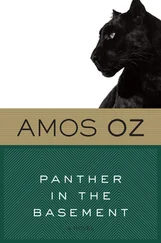Amos Oz - Where the Jackals Howl
Здесь есть возможность читать онлайн «Amos Oz - Where the Jackals Howl» весь текст электронной книги совершенно бесплатно (целиком полную версию без сокращений). В некоторых случаях можно слушать аудио, скачать через торрент в формате fb2 и присутствует краткое содержание. Год выпуска: 2012, Издательство: Houghton Mifflin Harcourt, Жанр: Современная проза, на английском языке. Описание произведения, (предисловие) а так же отзывы посетителей доступны на портале библиотеки ЛибКат.
- Название:Where the Jackals Howl
- Автор:
- Издательство:Houghton Mifflin Harcourt
- Жанр:
- Год:2012
- ISBN:нет данных
- Рейтинг книги:4 / 5. Голосов: 1
-
Избранное:Добавить в избранное
- Отзывы:
-
Ваша оценка:
- 80
- 1
- 2
- 3
- 4
- 5
Where the Jackals Howl: краткое содержание, описание и аннотация
Предлагаем к чтению аннотацию, описание, краткое содержание или предисловие (зависит от того, что написал сам автор книги «Where the Jackals Howl»). Если вы не нашли необходимую информацию о книге — напишите в комментариях, мы постараемся отыскать её.
Where the Jackals Howl — читать онлайн бесплатно полную книгу (весь текст) целиком
Ниже представлен текст книги, разбитый по страницам. Система сохранения места последней прочитанной страницы, позволяет с удобством читать онлайн бесплатно книгу «Where the Jackals Howl», без необходимости каждый раз заново искать на чём Вы остановились. Поставьте закладку, и сможете в любой момент перейти на страницу, на которой закончили чтение.
Интервал:
Закладка:
At the sound of these words the boy Jephthah picked up a small stone and touched his lips with it, and suddenly he pleaded out of the depths: God love me and I will be your servant, touch me and I will be the leanest and most terrible of your hounds, only do not be remote.
After the burial the sky closed in. Massive, dark shapes sped in succession on the wind, as though sent to crash against the wall of mountains to the east or to break through that same mountain wall. Later still, white flashes struck and then the low thunder rolled. The house built entirely of black volcanic stone stood in the midst of the storm looking as though it had already been burned.
Jephthah returned from the burial ground and entered the house. Pressed against the dark wall in the shadow of the entrance hall stood his three half-brothers, Jamin, Jemuel, and Azur, as though awaiting his return. He passed between them in the narrow hall, and their chests almost brushed his shoulders as he passed, yet not one of them moved or stirred. Only the wolflike look in their eyes groped at Jephthah’s skin as he passed between them in the entrance to the house. He did not speak and the brothers did not speak to him, they did not even speak to one another, not a whisper passed among them. All day long the three of them paced up and down the passages of the house; every footfall gave an impression of supreme delicacy, even though the brothers were generally clumsy men.
Jamin, Jemuel, and Azur paced up and down the house on tiptoe all day long, as though their brother Jephthah were dangerously ill.
Toward evening their mother Nehushtah left her bed and her bedchamber and went to stand at a window. But contrary to her habitual custom, she did not look through the window to see what was outside, but stood with her back to the window and her eyes on the orphan boy. With a chalk-white hand Nehushtah daughter of Zebulun stroked her hair. She said to her sons:
“From now on he, too, is an orphan cub.”
And the sons said:
“Because his mother is dead.”
She added in a whisper:
“You are all large and dark, but one of you is quite different, fair and very thin.”
And Jamin, the eldest, said:
“Thin and fair, but not one of us. The night is falling.”
That same night Nehushtah his stepmother suddenly came to see Jephthah in his room on the rooftop. She opened the door and stood barefoot in the doorway, just as Pitdah used to come barefoot, but between Nehushtah’s white fingers there was a white candle, and its flame was trembling violently. Jephthah saw her wan smile as she came close to his bed and passed a cold, damp hand across his brow. She whispered to him:
“Orphan. Go to sleep now, orphan.”
He did not know what to say to her.
“You are mine now, thin little orphan cub. Go to sleep now.”
With her fingertips she touched the curls on his chest for a moment. Then stopped.
When she left the room the stepmother blew out the lamp. She took both the lamp and the candle out with her when she went. It was dark.
All night long the storm raged outside. The wind hurled itself drunkenly against the walls of the house. The pillars groaned and the wooden ceiling whistled and creaked. In the yard the dogs went mad. The terrified cattle moaned and wailed in the darkness.
Jephthah stood watching at the door until dawn in case they came. He gripped his knife between his teeth. He imagined that beyond the door he could hear soft footsteps padding up and down, the whisper of cloth rubbing against stone, a rustling sound on the topmost stair. And outside a hyena laughed, a bird screeched, iron clanged at the edge of the shadows. The house and the farm stood strange and sinister.
At first light Jephthah slipped out through the window of his room and shinned down the vine with his knife between his teeth. He stole bread, water, a horse, and a dagger from the empty farmyard and fled to the desert to escape from Jamin, Jemuel, and Azur his brothers, his father’s sons.
Gilead the Gileadite, the lord of the property, had not appeared at the graveside of his servant Pitdah in the plot reserved for outcasts, nor after the burial, in the evening or the night.
The sun rose and the storm ceased. The desert sand drank up all the puddles of water and once more became arid and brilliant in the terrible light.
The whiteness of those wide expanses rose uncompromising and merciless.
Only in the crannies of the rocks did a little water still remain, dazzled by the blinding sunlight. For a moment Jephthah imagined that the hollows of the stones were clutching the remains of last night’s lightning. He had seen all these sights before in his dreams. Everything, the mountains, the sand dunes, the wind, and the dazzle, everything called out to him, Come, come.
After a few hours, when his horse had carried him well away from his father’s house, his mind suddenly cleared. To the Ammonites. It was time for him to go to the children of Ammon. With the Ammonite bands he would return when the right time came and set fire to the whole farm. As the fire consumed everything, Jephthah the Ammonite would emerge through the flames carrying the unconscious body of the old man in his arms. He would lay him down among the embers and ashes and crouch over him to give him water and dress his wounds. When Gilead had lost his wife, his farm, and his sons, what would he have left except his last son, who had saved his life.
And then they could both set out together to look for the sea.
The following night, by the light of a clay lamp, the household clerk wrote in the household records: Jephthah shall have no inheritance in his father’s house because he is the son of another woman. And the household clerk wrote further in the household records: Darkness and wrath surely beget wrath and darkness. This whole affair is evil: evil is he who has fled and evil are those that remain. Evil will also be our latter end. May God forgive his servant.
5
JEPHTHAH DWELLED for many days among the Ammonites in the city of Abel-Keramim. From his childhood he spoke their language and knew their laws and their songs, because his mother had been an Ammonite woman who was snatched by the Gileadites when they raided the Ammonite settlements beyond the desert.
Indeed, in Abel-Keramim he also discovered his mother’s father and all her brothers, who were great men, and they adopted Jephthah and took him into the palaces and temples. The Ammonite princes honored and exalted Jephthah, because the sound of his voice was cold and lordly and a yellow glint sometimes appeared in his eye, and also because he was very sparing in his use of words.
They said:
“This man was born to be a leader.”
And they also said:
“Truly it seems that this man is always at rest.”
And also:
“It is very hard to know.”
When shooting arrows or carousing, Jephthah sometimes seemed to those around him to be moving slowly, almost wearily or with a slight hesitancy. How deceptive this was: like a knife reposing between folds of silk.
He had the power to say to a stranger: Rise, come, go; and the man would rise or come or go, although Jephthah made not a sound, only his lips moved. Even when he turned to one of the elders of the city and said, Now speak, I am listening, or, Do not speak, I am not listening, the elder felt an inner compulsion to reply; Yes, my lord.
He was loved by many women in the city of Abel-Keramim. Like his father Gilead before him, he was endowed with powers of sadness and powers of silent dominion. Women longed to dissolve the power and penetrate the sadness and also to submit to them. At night, between the silken sheets, they whispered into his ear: You stranger. When his skin touched theirs they would cry out. And he, mute and remote, knew how to extract from them a gushing melody, as well as slow, tormented tunes, a fervent arching and swelling beyond endurance, patiently sailing upstream night after night to the very limit of the soul.
Читать дальшеИнтервал:
Закладка:
Похожие книги на «Where the Jackals Howl»
Представляем Вашему вниманию похожие книги на «Where the Jackals Howl» списком для выбора. Мы отобрали схожую по названию и смыслу литературу в надежде предоставить читателям больше вариантов отыскать новые, интересные, ещё непрочитанные произведения.
Обсуждение, отзывы о книге «Where the Jackals Howl» и просто собственные мнения читателей. Оставьте ваши комментарии, напишите, что Вы думаете о произведении, его смысле или главных героях. Укажите что конкретно понравилось, а что нет, и почему Вы так считаете.












